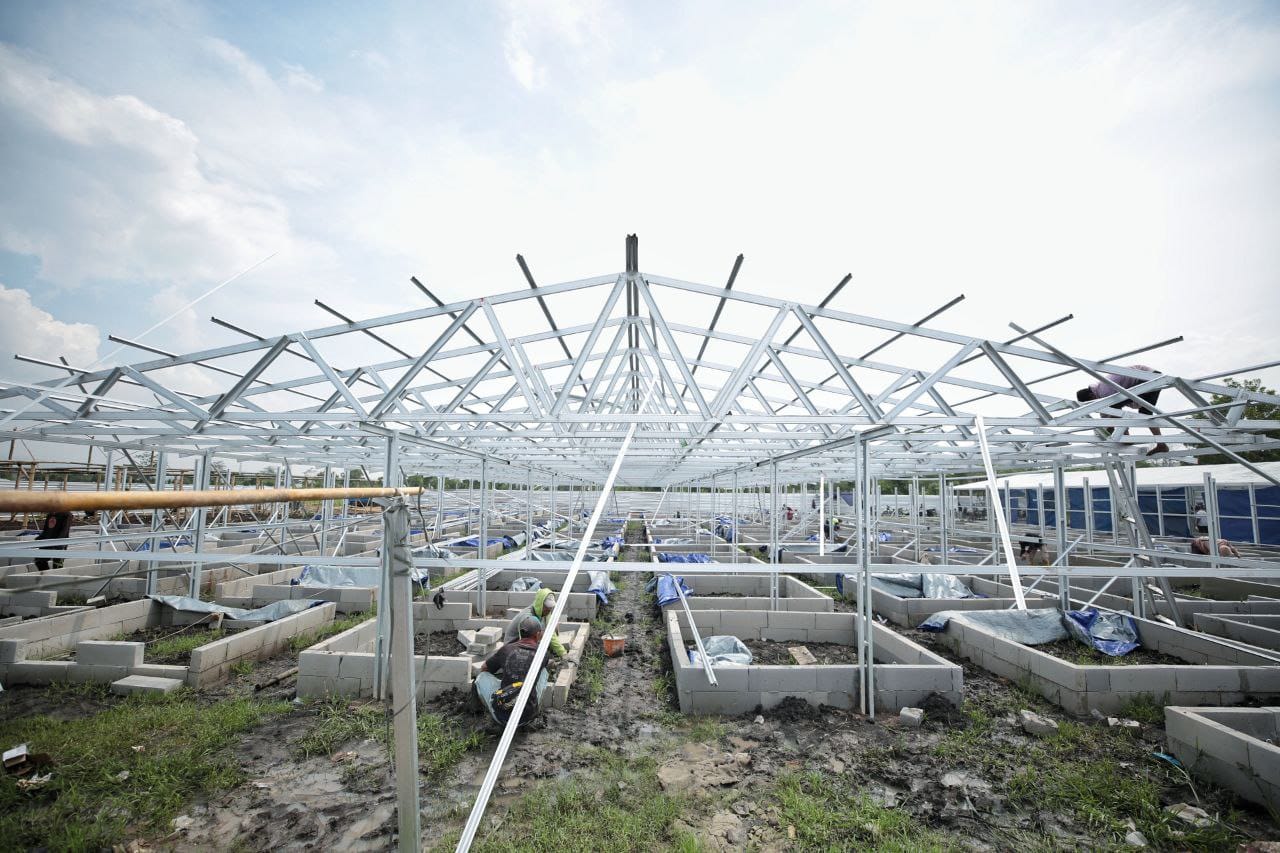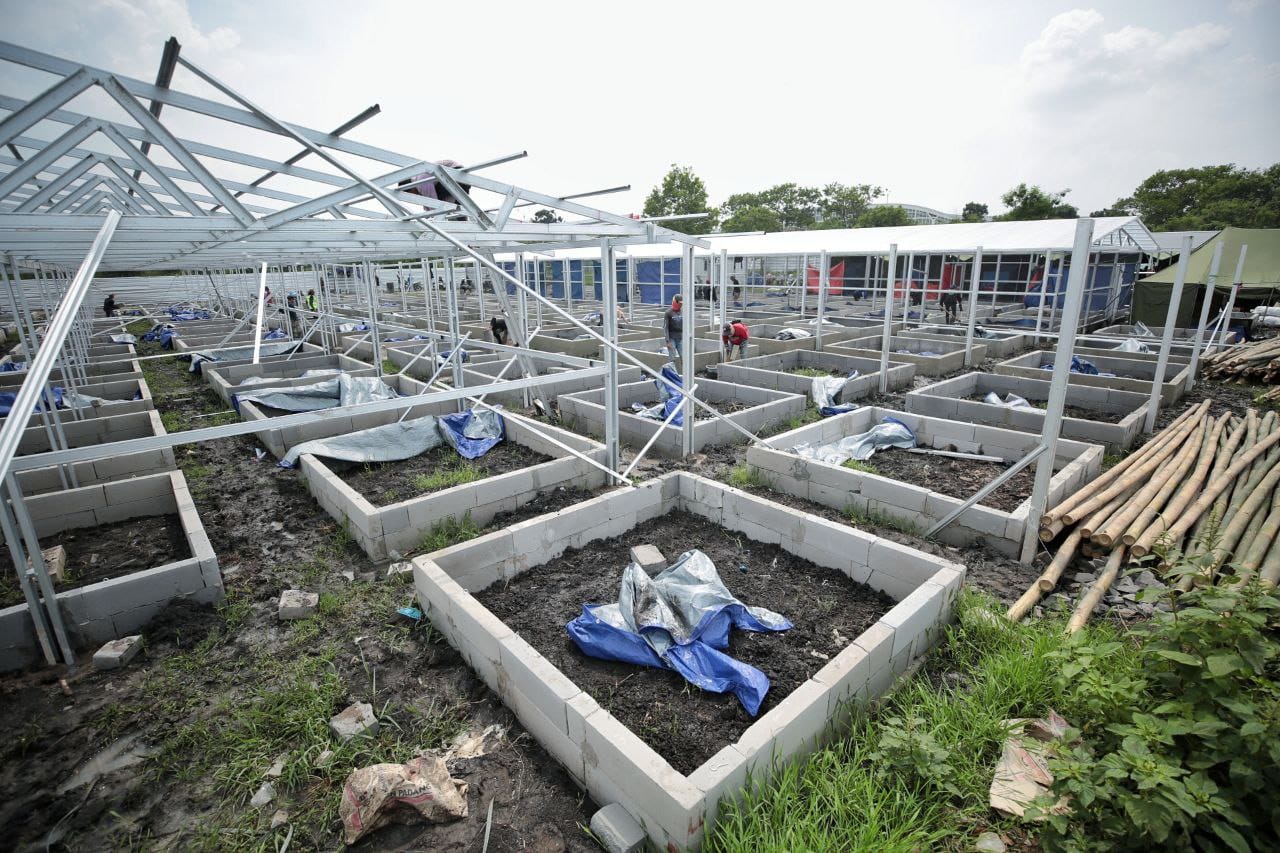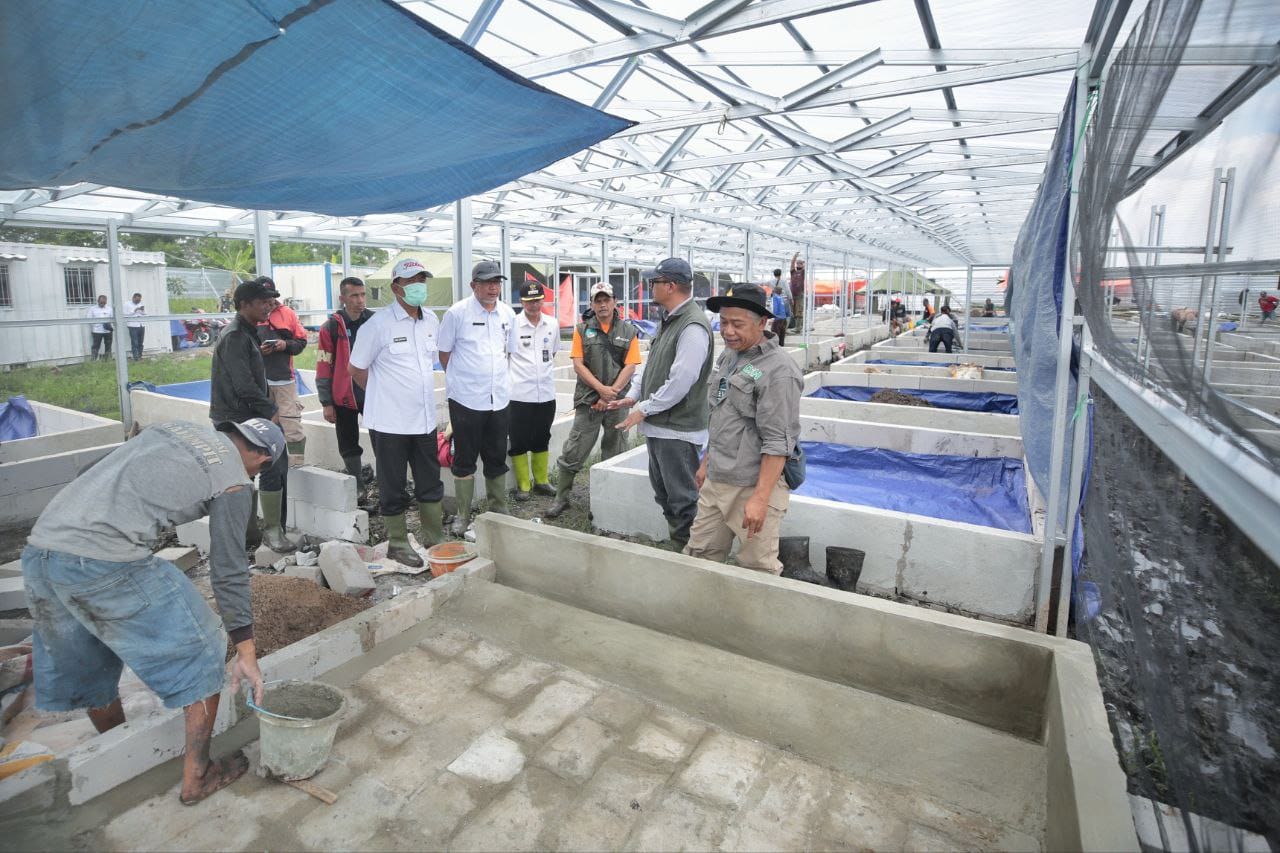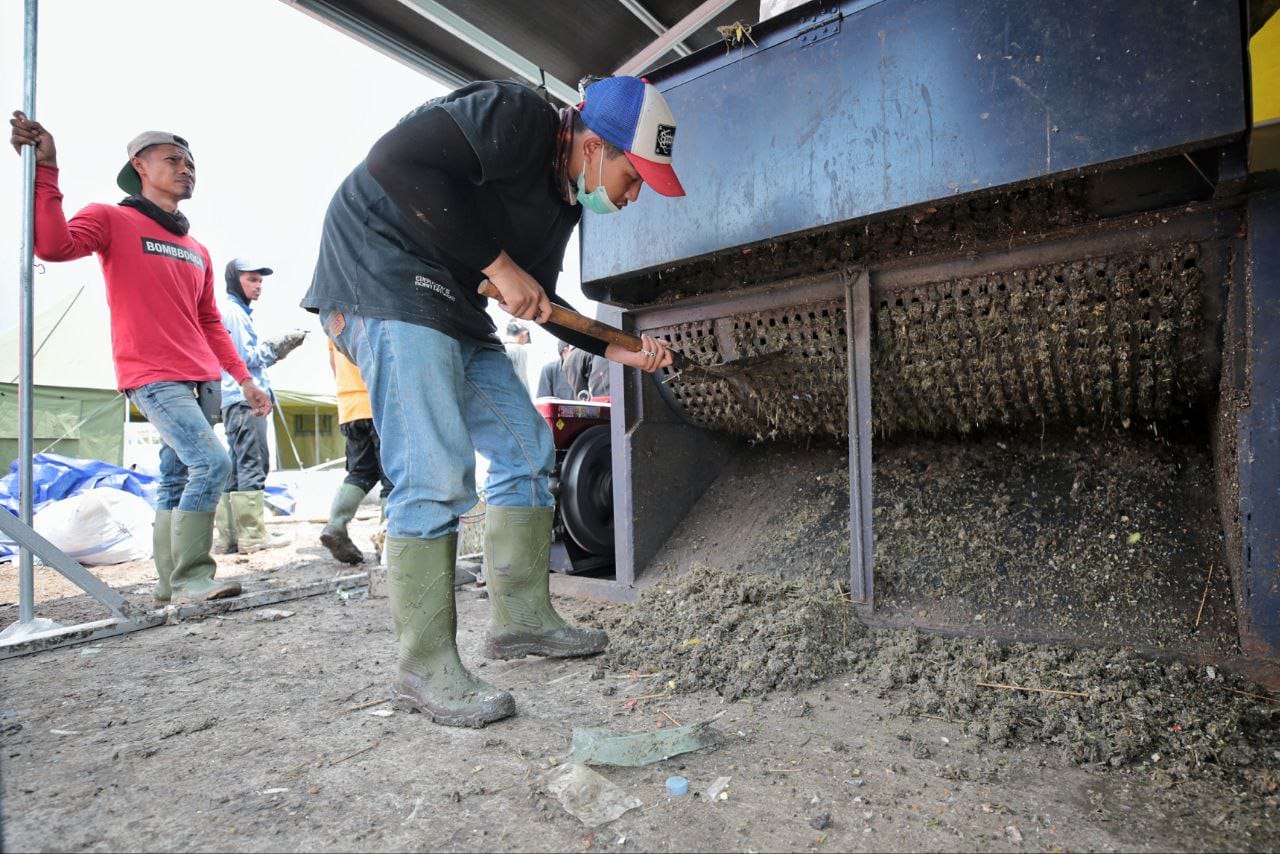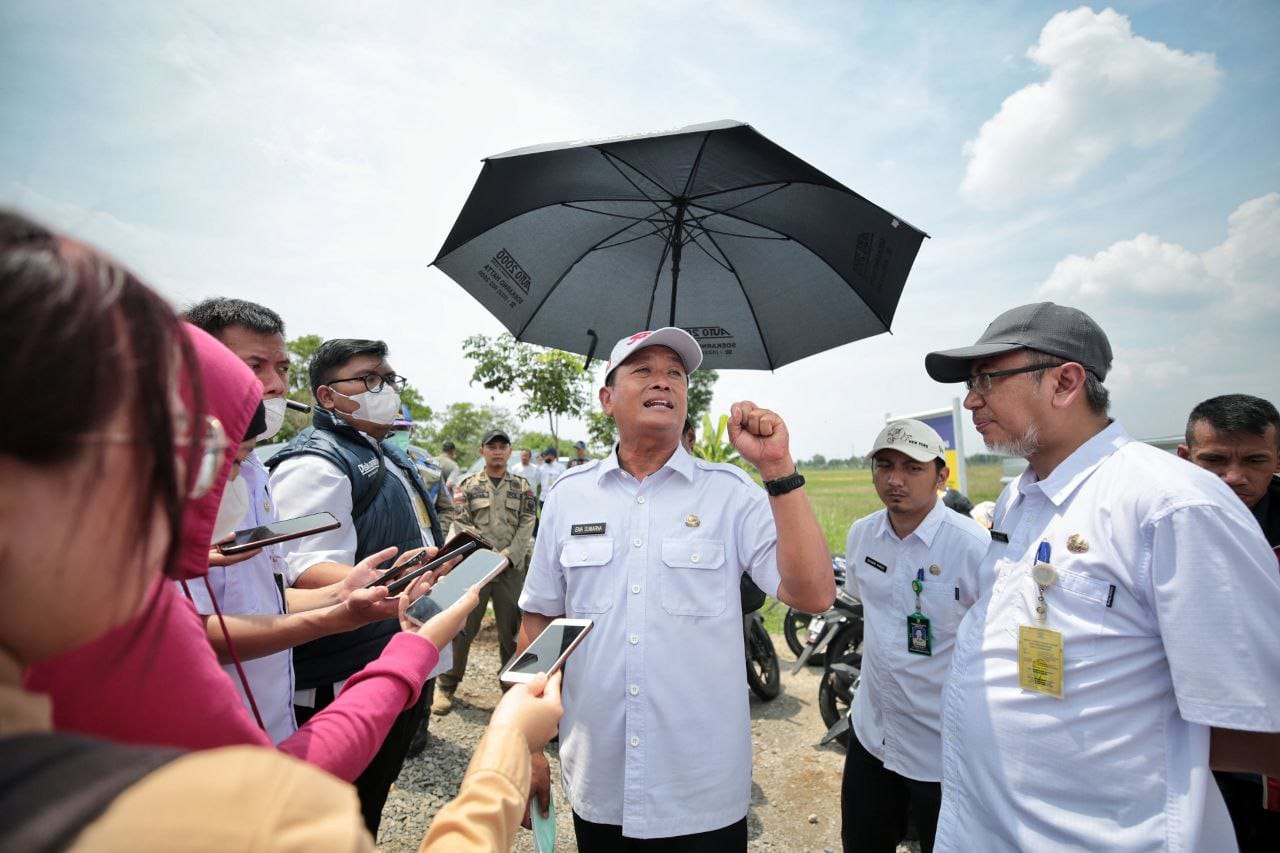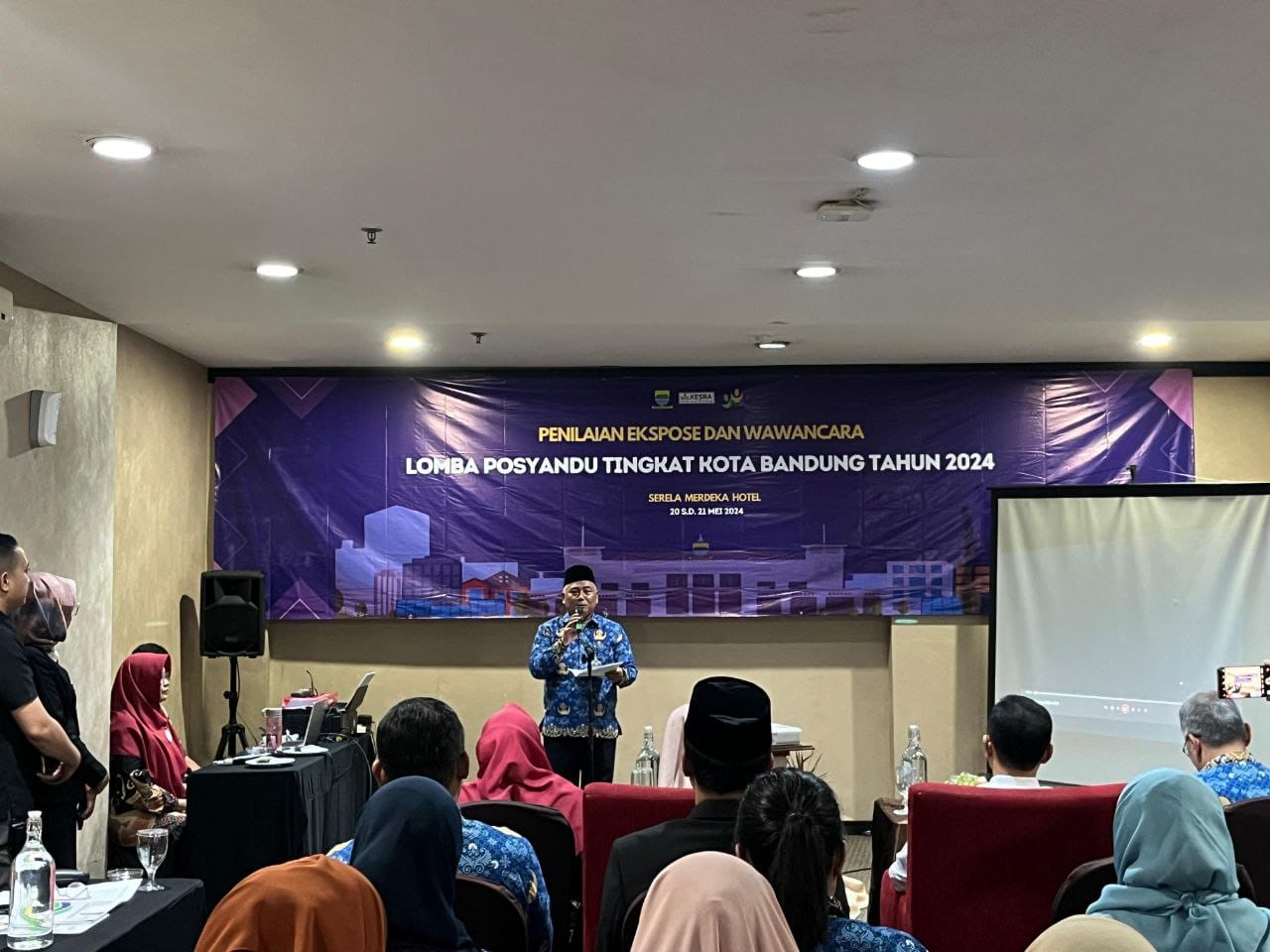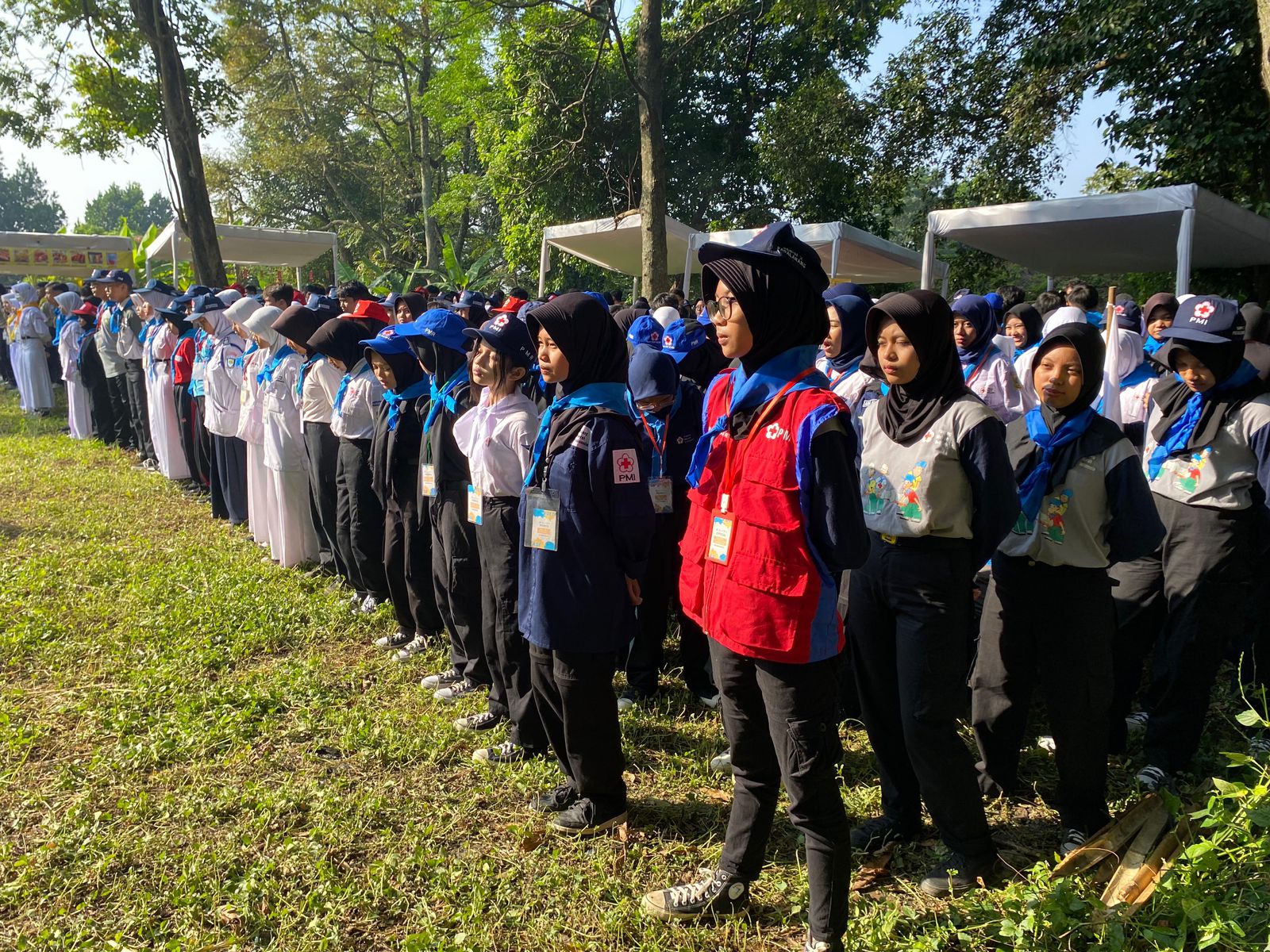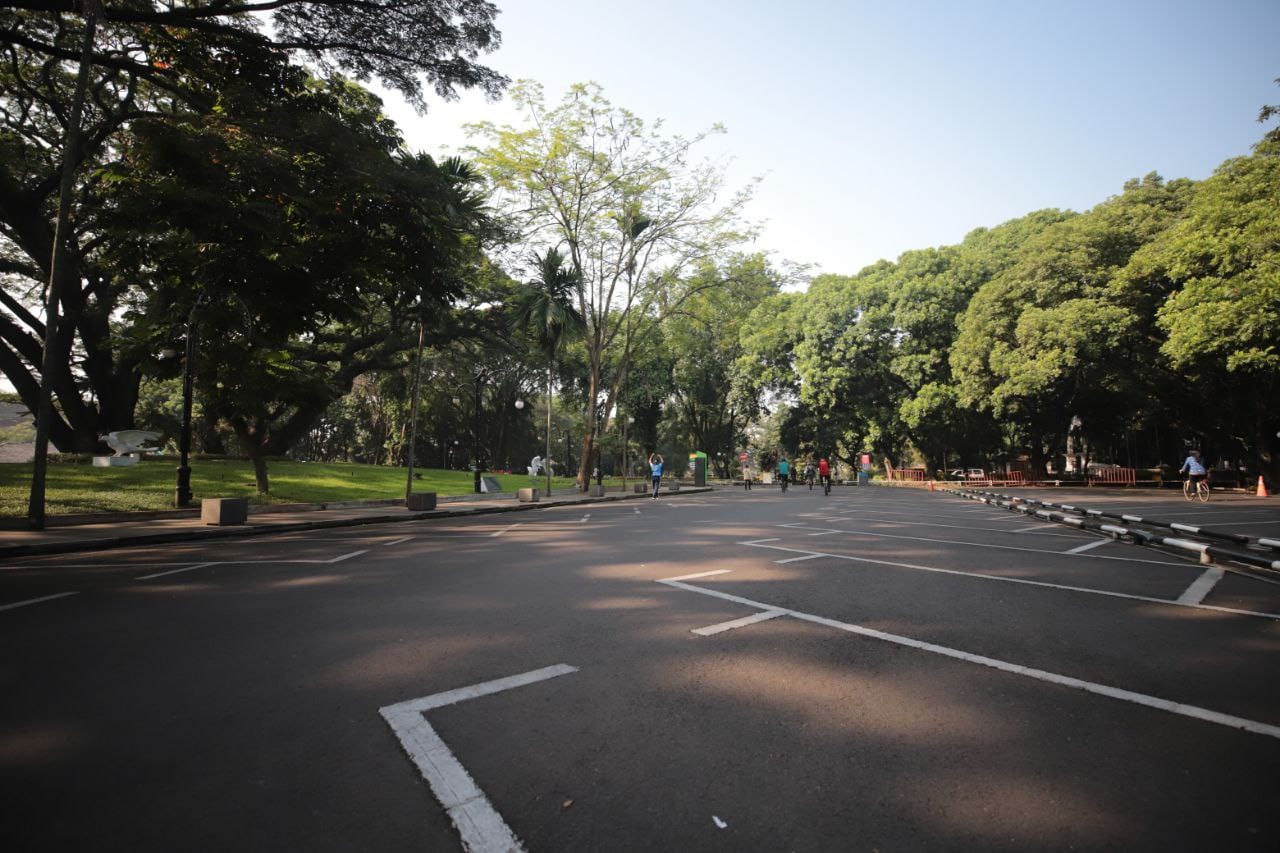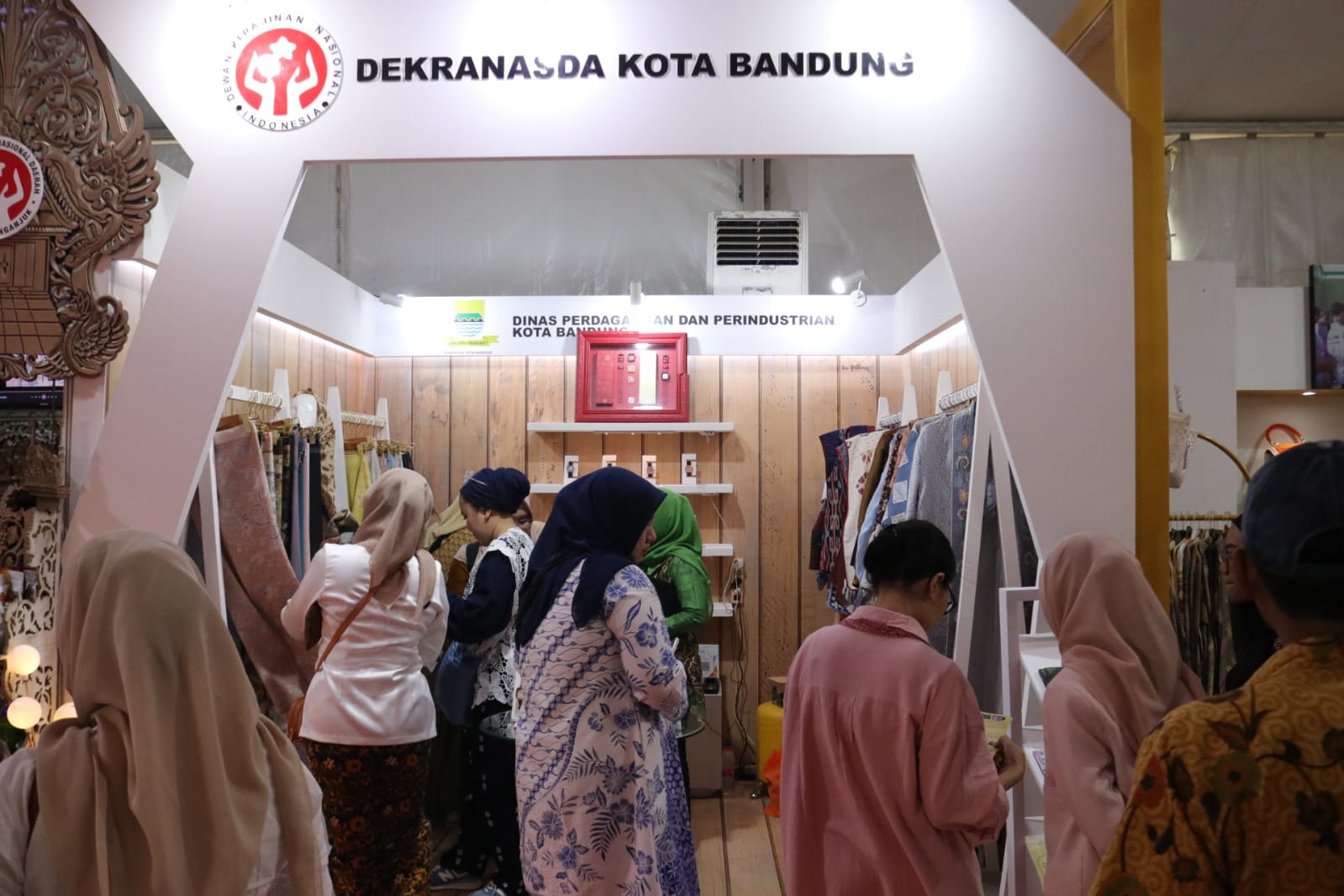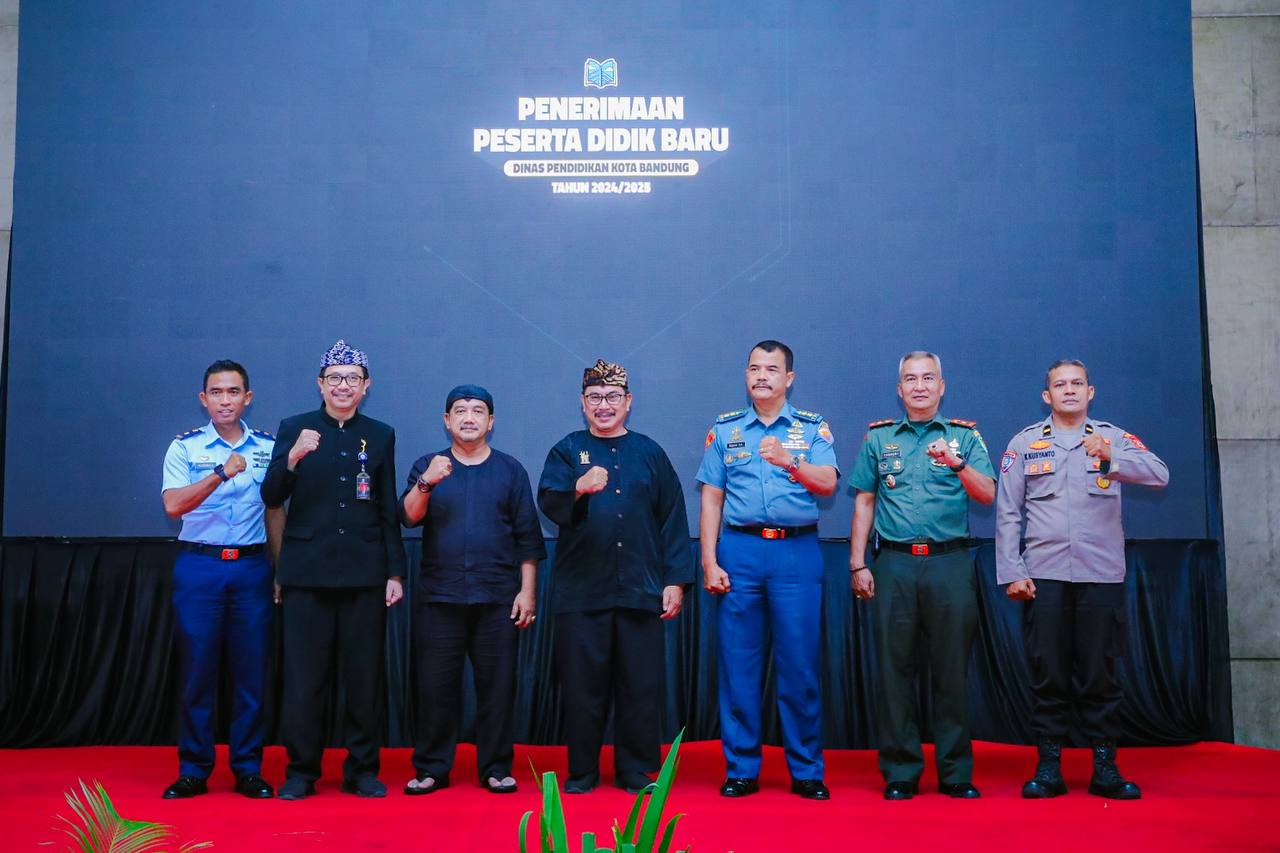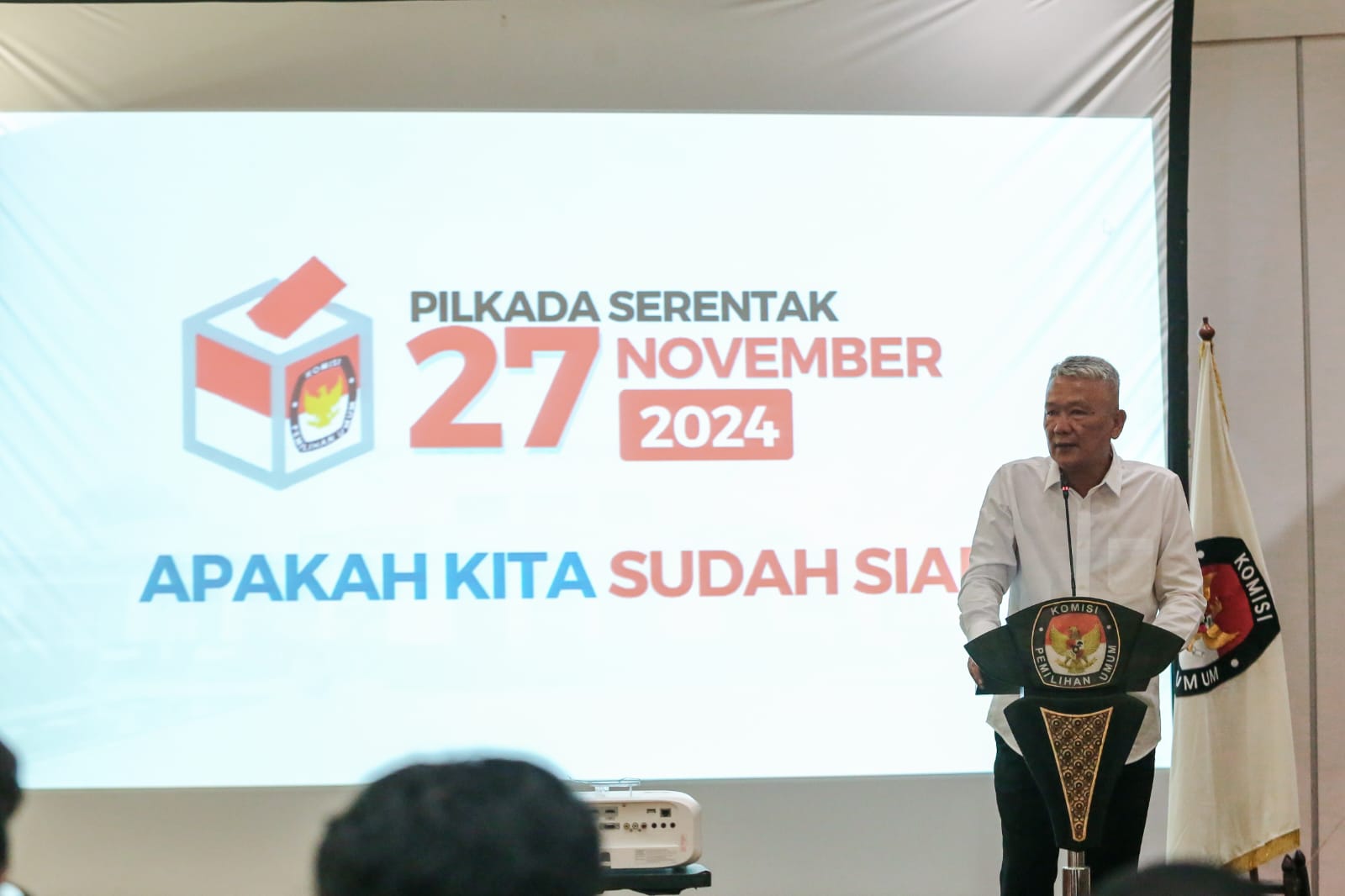Operating Soon, Gedebage TPST Begins Operational Trials
The Bandung City Government (Pemkot) has begun trialling the operation of the Gedebage Integrated Waste Processing Site (TPST). The TPST is targeted to be able to process more than 60 tons of organic waste per day.
"Thank God, this trial period is running, although it is not yet ideal. We have only used 9 biophones for maggotization. For the inorganic waste, 4 of the 6 conveyors are already running. The inorganic stuff has not yet been to Lawe, so it will be transported to Cukang Holis," said the Regional Secretary of the City. Bandung, Ema Sumarna while monitoring the Gedebage TPST, Wednesday 6 December 2023.
"Ideally, we would have a Gibrik machine for shredding and processing it into RDF. Waste that has economic value is sorted by these officers to provide additional income for them," he added.
Ema said that currently there are still several records, especially related to the Maggot hangar. He said maggots must be kept in conditions that are not hot and without water.
For this reason, paranets are currently being installed so that the hangar is protected from direct sunlight.
"After we saw it in the field and input from maggot activists, we have to use wall coverings that can absorb water, not tarpaulin, because maggots are said to be unable to eat in hot conditions," said Ema.
"The roof is still not perfect, we have to use paranet. Now the paranet installation must be completed in one to two weeks, because maggots cannot eat in hot conditions," he continued.
Apart from that, to avoid pests such as rats and birds, forts will be built and paving blocks will be installed.
"If a rat comes in, it's a maggot. That's why we'll re-wall the edges. Later we'll also pave blocks to make it comfortable. Don't let water leak out, maggots are uncomfortable with heat and water," he said.
Ema said that maggots are effective in decomposing food waste. For this reason, he will encourage cafe and restaurant food waste to be processed at the Gedebage TPST.
"We want all organic restaurant waste in the city of Bandung to be brought here (TPST Gedebag). Later it can be mixed with market waste and restaurant waste. Because maggots' favorite food waste is human food. One biophone box ideally reaches 1 quintal, the more food, the more maggots." " he said.
Overall, during the trial, the waste that could be processed reached 10 tons.
Ema said that the Bandung City Government had implemented various schemes to be able to process waste. Starting from maggot hangars in 151 sub-districts, Kang Empos for 20 percent of families in each sub-district and other schemes.
"We can process 20 tons of organic waste left over from food a day to complete the organic waste left over from food. We also have hangars in 151 sub-districts that can process 151 tons so in total we can process 171 tons of organic waste if everything is effective," he said.
"So if we want to reduce 550 tons of waste, 40 percent can be processed with this maggot. Not to mention the Kang Empos is running, when it is finished in Bandung there will be 20 percent of families in Bandung City, I think this is logical. Even though this is only 10 percent running," he added.
Ema also emphasized that the presence of the Gedebage TPST will not cause environmental pollution in the area.
"And this also does not pollute the environment, with the technology used it will not become environmental pollution. Because it has been discussed regarding that," he said.
Currently, the City Government still has a quota of 13,000 rit for the Sarimukti TPA or around 65,000 tons. Seeing existing developments, Ema is optimistic that before the end of the year the Gedebage TPST will operate optimally and the Waste Emergency status will end soon.
"There are many alternatives, if we get stuck on one alternative it will be difficult for us. Hopefully everything goes smoothly," he said. (rob)**
Head of the Bandung City Communication and Information Office
Yayan A. Brilyana




